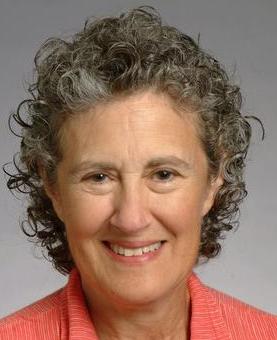博文
2008年图灵奖揭晓,Barbara Liskov成为第二位女性桂冠得主
||||
by 图灵刘江
转载请注明出处:http://blog.csdn.net/turingbook
【图灵本月主打书】iPhone开发基础教程 Amazon榜首图书,让我们抢先拥抱软件开发的未来
Flex 3权威指南 来自Adobe公司的官方教程
刚才看HackerNews获悉,昨天,ACM(计算机学会)将最新一届图灵奖颁发给了麻省理工学院的女教授Barbara Liskov。她将获得Intel和Google赞助的25万美元奖金。

这位美国第一位计算机科学女博士,如今成为了有史以来第二位女性图灵奖得主(第一位是前年得奖的 Frances Allen)。如果说前年和去年两届图灵奖得主我们很多同学都不熟悉的话,那么Liskov你要是没听说过,那就别大言不惭地说自己是程序员啦,面壁三天去先。什么?你不知道图灵奖?那,那你来CSDN干嘛?
ACM网站正式的颁奖理由是:
For contributions to practical and theoretical foundations of programming language and system design, especially related to data abstraction, fault tolerance, and distributed computing.
(对编程语言和系统设计的实践与理论基础,尤其是数据抽象、容错和分布式计算方面的贡献。)
Wikipedia上对她的简介是这样的(这个条目是我刚才写的,呵呵):
芭芭拉·利斯科夫(1939年—),本名Barbara Jane Huberman。美国计算机科学家,2008年图灵奖得主,2004年约翰·冯诺依曼奖得主。美国工程院院士,美国艺术与科学院院士。ACM会士。现任麻省理工学院电子电气与计算机科学系教授。
1961年在加州大学伯克利分校获得数学学士学位。1968年在斯坦福大学获得博士学位,她是美国第一个计算机科学女博士。导师为1971年图灵奖得主约翰·麦卡锡,论文题目是国际象棋残局程序。
利斯科夫领导了许多重要的项目,包括小型低成本交互式的分时操作系统Venus,第一个支持数据抽象的面向对象编程语言CLU的设计与实现,第一个支持分布式程序实现的高级语言Argus,面向对象数据库系统Thor,还有最近的Byzantine分布式容错系统。其中,CLU语言对现代主流语言如C++/Java/Python/Ruby/C#都有比较深远的影响。而她从这些实际项目中提炼出来的数据抽象思想,已经成为软件工程中最重要的精髓之一。
她另外一个在程序设计中有广泛应用的成就,是与周以真(Jeannette Wing)一起提出的Liskov替代原则,是面向对象最重要的几大原则之一。
【图灵图书推荐】图灵奖得主著作:Jim Gray事务处理:概念与技术(英文版)
Ian Sutherland 高速CMOS电路设计:Logical Effort方法(英文版)
可以说,Liskov是历史上为数不多的与程序设计直接相关,或者说是程序员出身的图灵奖得主。她的博士论文就是一个程序,还是一个游戏程序嘛。而Liskov替代原则,只要你用面向对象,就很可能天天在用。
关于CLU语言,还可以多说几句。在Wikipedia CLU条目上有这样的一段话:
- Python and Ruby borrowed several concepts from CLU (such as the yield statement and multiple assignment)
- CLU and Ada were major inspirations for C++ templates.
- CLU's exception handling mechanisms also influenced newer languages like Java and C++.
- All objects in a CLU program live in the heap, and memory management is automatic. These elements directly influenced Java.
- Python and C# include generators (iterators in C#), which first appeared in CLU as iterators.
- Lua took multiple assignment and multiple returns from function calls from CLU.
搜索了一下,国外有DDJ和MIT网站有报道。国内新浪和搜狐基本上就是翻译了上述外国网站上的内容,内容很业余,但是比起前几年过了多少天也没反应,已经强很多了。DDJ的报道还是比较深入的,还有一个小的Q&A:
Q: When you began your career in computer science, it was still a relatively young field. How have you seen this discipline evolve over time -- at MIT and elsewhere?
A: The change has been tremendous. When I started, most of the field was unexplored and there were obvious problems everywhere -- lots of low-hanging fruit, but also very fundamental issues that were poorly understood and very confusing. Today the field is on a very sound foundation. There are still many problems to work on, but now this work happens in the context of all that has gone before. When I started, this context was missing, so you just struck out on your own.
Q: Looking back at your career, what is the single accomplishment of which you are most proud?
A: Probably the development of the concept of data abstraction and the CLU programming language. This work was done at MIT in the 1970s.
Q: Where do you plan to focus your research going forward?
A: Today I am working primarily on distributed systems -- systems that run on many computers connected by a network like the Internet. My focus recently has been on the security of online storage. I believe that more and more users will store their information online, but the storage they use needs to be implemented so that they don't lose their information, their information is available when they need it, and they can be confident that their confidential information will not be leaked.
Q: As the first woman to earn a PhD in computer science, what advice would you give to other women who are considering going into this field?
A: I have found computer science to be a wonderful field to work in. I think the main reason is that the kind of thinking and problem-solving it requires matches my abilities. I believe that finding work to do that you like and are good at is the most important way to find a satisfying career. Young women (and young men) who find that computer science is a match for them should pursue it. There is lots of interesting work remaining to be done.
Q: When you began studying computer science at Stanford, computers were big mainframes and the Internet was still in the distant future. Today, computers fit in the palm of our hands -- many are much smaller -- and the Internet is ubiquitous. Given that you have watched these transformations over the last five decades from a front-row seat, what do you think the next half-century will hold?
A: I don't have a crystal ball! It seems obvious that computers and the Internet will continue to be very important to individuals, companies and society. But I don't know the exact form this will take.
【延伸阅读】
图灵奖得主、FORTRAN之父逝世——一位回头浪子的传奇人生
https://m.sciencenet.cn/blog-104103-220110.html
上一篇:学生抄袭,院士应该负责